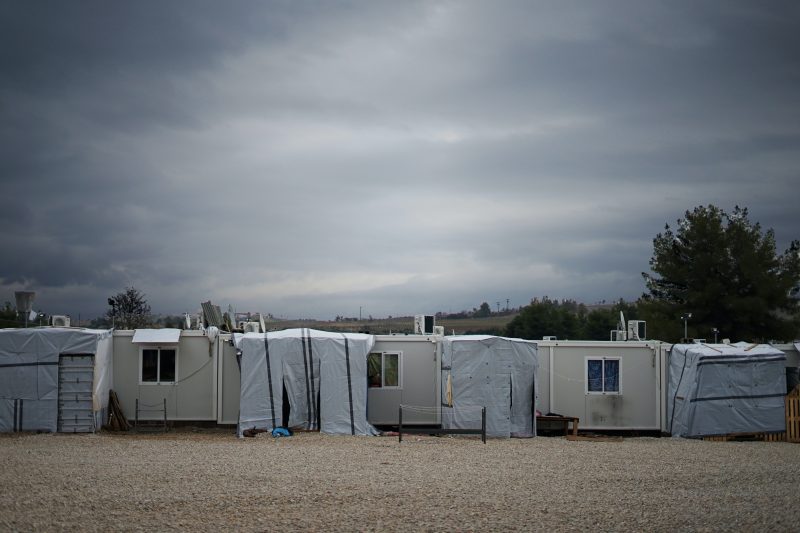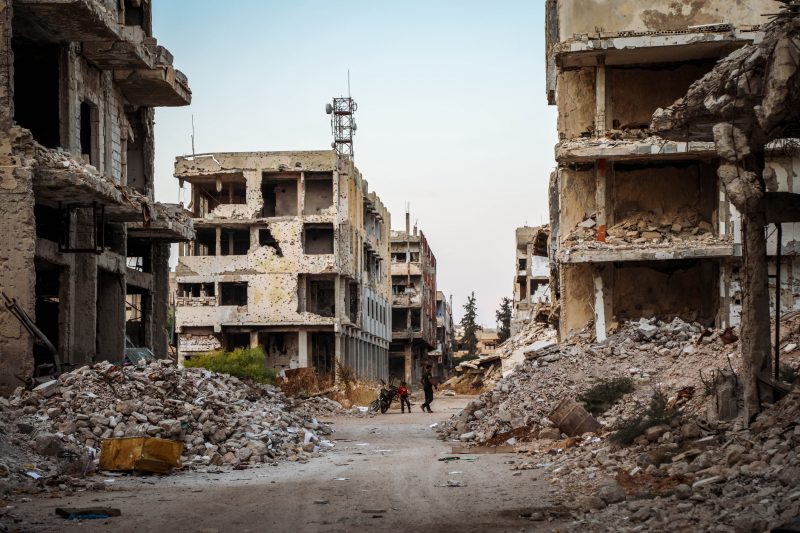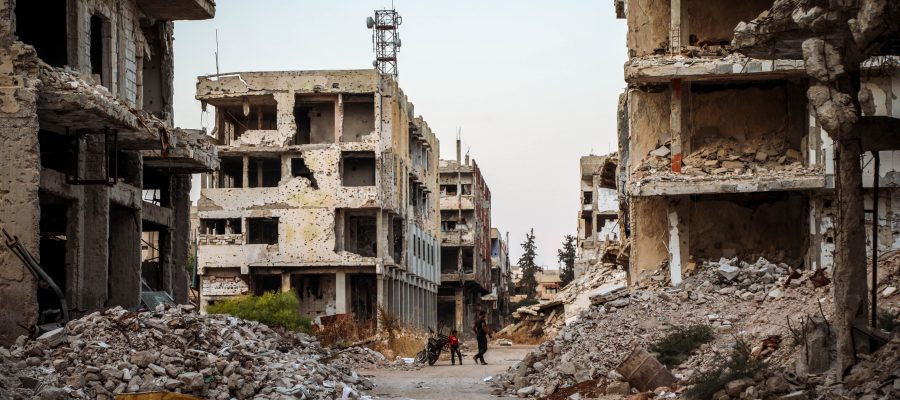Why Syrians still seek refuge?
The world is facing an immense human-induced crisis. After World War II, just with in the last three decades, planet-earth has hosted horrific human suffering from Iraq to Ukraine war, Afghanistan to Syrian hybrid war, Somalia to Yemen crisis, Congo to Ethiopian civil war.
Among these human suffering, the Syrian war is one of the deadliest in recent world history. 12 years ago, the destructive and tragic war began in the country following the protests against President Assad’s regime in March 2011, but suddenly it completely changed into a hybrid war, when the Syrian government was backed by Russia and Iran, the anti-government rebel groups were backed by the United States, Saudi Arabia, Turkey, and others in the region.
Syrian buildings turned into ashes, thousands of innocent Syrian people have lost their lives. Millions have fled to neighboring countries and Europe to save their lives. The mainstream media were taken to the ‘War in Syria’-headlines and the world watched this horrific human suffering out of war.
It has been reported that three campaigning variables have been driving the conflict; coalition efforts to defeat the Islamic State, violence between the Syrian government and opposition forces, and military operations against Syrian Kurds by Turkish forces.
A research finding indicates that more than 10 million Syrians have left their homes and sought refuge in neighboring countries, including Europe, since March 2011, and immigration continues to this day. Germany is a hub of international migrants and between 2015 and 2019 alone more than 1,622,954 people registered as asylum seekers with Syrians being the largest single nationality.
From January to December 2022, 217,774 initial applications were received by the German Federal Office for Migration and Refugees. 148,233 initial applications were submitted in the same period of the previous year; this represents an increase of 46.9% compared to the previous year. Syria with 70,976 initial applications ranked first. This is a 29% increase comparing with in the previous year of 54,903 initial applications.

Actual pushing factors
Abbas, a 30-years-old refugee, came to Germany in September 2021 to escape the obligatory military service in Syria. He is now in the Free State of Saxony and attending an integration course. ‘I graduated from the Faculty of Medicine and want to start a new life in Germany as a specialist. I have worked there just one year but I didn’t finish my specialization’, he said.
‘When I was in Syria, the cost of living was horrible and terrifying. It is a disaster for a family to sustain life. Medical doctors only get 30 Euro/month. A family needs to spend about 200 euro/month for living. But they get around 30 Euro/month. The cost of living is very expensive. The head of the family should have multiple jobs to survive’, said Abbas, explaining the hardship conditions of living in Syria.
14.6 million Syrian are in need of humanitarian assistance in 2022, which shows a 1.2 million increase from 2021, and an increase from 6.4 million in 2020 to 9.2 million in 2021. Data shows that Syria remains the largest in humanitarian responses in the world, with assistance delivered to 6.8 million people per month in the past year.
Even though the humanitarian workers and other concerned have been hoping for the betterment of humanitarian conditions in Syria, the macro-economic conditions continued to deteriorate in 2021, and appear to be worsening further. There are different socioeconomic variables or factors which are pushing Syrians to seek refuge in other countries due to combined effects of currency depreciation, soaring prices, reduced fiscal revenue and increasing domestic debt and widespread losses in livelihoods.
Borhan Akid, aged at 30, is a Syrian born journalist in exile, Germany. He came to Germany in 2015 to seek refuge and currently works at WDR. ‘There is an ongoing conflict in Syria and the pandemic has further complicated the problem in the past years. I have contact with many people who have families in Syria; people are facing the worst economic crisis since the war started’, he said.
Even though Russia and Turkey agreed to reduce hostilities and large-scale displacement in March 2020 at Idleb, hostilities have intensified throughout 2021 along frontlines across the northwest, northeast and south of the country that have not shifted significantly since 2020. They are driving humanitarian needs to a significant extent.
Most people are losing their hope of survival in Syria. ‘Young people are leaving the country to escape the obligatory military services. There is the ongoing war in the northern Syria- Aleppo and Idleb, and in the northeastern Al-Halasaka. The middle of Syria is not safe that much because the military check points are everywhere. They check your ID every 2-3 km. Freedom of speech and freedom of movement are completely unthinkable. There is still war in Al-Dana, where the revolution started. Millions are out of Syria to both neighboring countries and Europe’, said Abbas.
Recently, the Saxon Minister of the Interior, Armin Schuster (CDU), hinted that there might be a deportation to Syria. However, for Petra Čagalj Sejdi, a spokesperson for asylum, migration and integration of the parliamentary group Alliance 90/The Greens in the Saxon Parliament, highlights that deportations to Syria are not compatible with the principle of non-refoulement under international law.
‘’In the debate, Mr Schuster and many other actors like to paint the picture of “endangered persons” and “criminals” who must be deported for protection. Such demands are also contrary to international law. For me, the question always arises how and for what reasons people become “criminals” / “dangerous persons”. Often it is the circumstances in our country that contribute to this and not the country from which the person fled. Deportations to Syria would also require cooperation with the inhumane regime in Damascus. Such cooperation is not acceptable for us’’, said Čagalj Sejdi.

Climate change exacerbates the Syrian crisis
The effect of human induced-climate change has not only complicated the Syrian crisis, it is also a major global risk and a source of many interconnected crisis across the world. Syria, in particular, has faced climatic and human-caused shocks affecting natural resources such as water.
Extreme weather events combined with historically low water levels in the Euphrates River have minimized drinking water accessibility and hydroelectricity generation, facilitated harvest and income losses, increased water-borne diseases, and other interconnected havocs.
‘’There is a water scarcity in the northern Syria. Millions are in need of health care and many people have been dying because of scarcity of medications. There is also power outages. People are below poverty line’’, said Akid, explaining the extent of environmental damages.
The two severe droughts in Syria, the 1998–2001 and the 2006–2010 drought, led to temperature increases and decreased rainfall which impacted soil moisture level. Besides the impact of drought, the war has intensified disparities and patterns of human insecurity, and destroyed Syria’s agriculture. Data shows the sector has shrunk more than 40% since 2011 and a huge damage imposed by the government and foreign powers’ airstrikes to water and wastewater treatment infrastructure that resulted in a 50% decrease in access to safe water.
Climate change combined with food supply crises, energy supply crises, cost of living crisis, inflation and geopolitical fragmentation that drive geo-economics warfare are the most global risks in 2023 which could make it more complicated to manage the movement of people seekingrefuge.
The pathway to Integration
According to the Federal Statistical Office (Destatis), around 131,600 foreigners have become naturalized German citizens in 2021 and 19,100 Syrian are among them.
An estimated of 800,000 Syrians are living in Germany, making it the third largest community of foreign nationals followingpeople from Turkey and Poland. However, the human rights group, Adopt Revolution indicated that 200.000 Syrians who are seeking protection in Germany are affected by the obligation to procure a passport.
‘’The asylum procedure takes a long time with obligation to stay at poor accommodation centers. They have to work fast. Maybe the BAMF needs to have more employees. Three months in camps are okay but six moths are too long’’, said Abbas.
Akid also shares Abbas’s idea, ‘’even though the integration process is good for Syrians in Germany, the facilities in accommodation centers and the long waiting time in asylum procedure must be improved. So many Syrians are allowed to integration courses, but many people have to wait for a long time to get into an integration course. People from Ukraine are more welcomed than Syrians these days, but there are still so many organizations supporting refuges across Germany’’, said Akid.
‘’People who have been living in Germany want to bring their relatives, but they are not be able to bring them here except in some federal states. If the family unification were allowed, it could reduce illegal migration and save lives. Most families here have jobs to enable them to cover the cost’’, said Akid.
For Čagalj Sejdi, the integration process is not always goal-oriented, ‘’We are currently discussing a Saxon Integration and Participation Act. What does it have to say so that all people with a migration history can participate equally in all areas of society? We Alliance Greens have identified a number of points that need to be addressed, such as anti-discrimination, equal representation on committees, advisory boards for migrants and participation officers in the municipalities, a diversity-sensitive and post-migrant administration and sufficient counselling and support services, especially self-empowerment’’, said Čagalj Sejdi.
Akid has also blamed racism in the housing market, ‘’housing should be affordable and available for refugees, because Germany needs too many working forces. Many people are living in shades- they cannot get out of them and start life. Because racism is the problem here in Germany. Many ministries are working to reduce it’’, said Burhan.
‘’We are still far from the goal of equal participation and a post-migrant society. But I also have to say that a lot has already been done when I look, for example, at the many projects that are funded through the funding guideline “Integrative Measures” or at the increasingly self-confident migrant self-organisations. The diverse society is a process. I am glad that this process has been set in motion’’, said Čagalj Sejdi .
Bildquellen
- julie-ricard-i9rzrKo5Vao-unsplash: Julie Ricard
- mahmoud-sulaiman-aO9nGw9Cbk0-unsplash: Mahmoud Sulaiman



